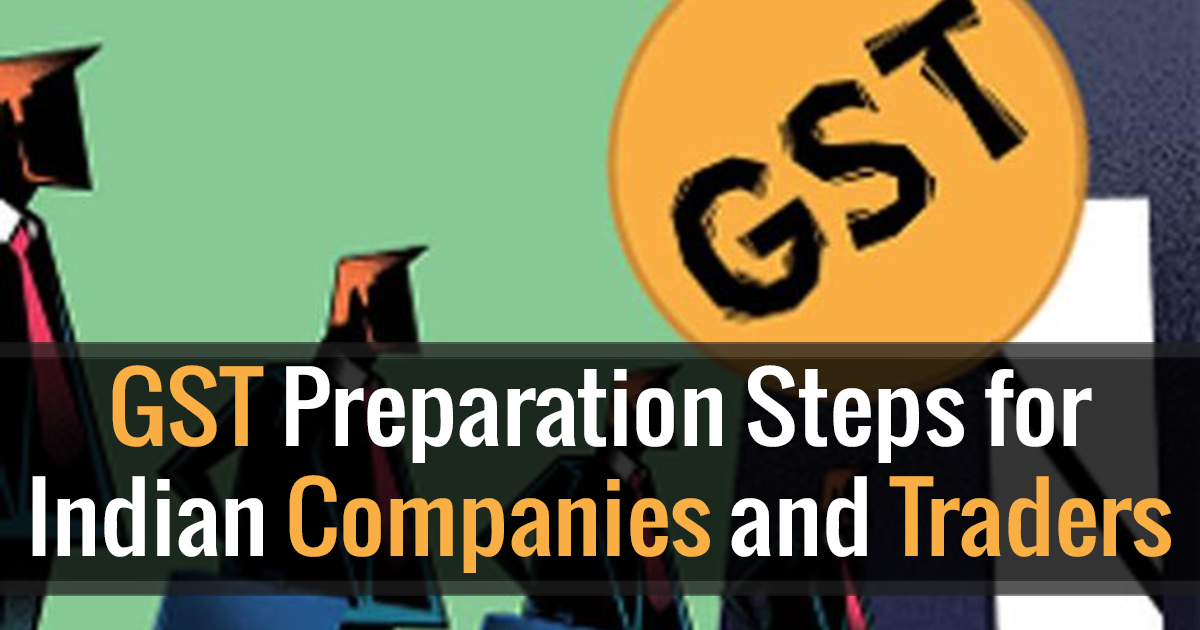
Without uncertainty, the initiation of GST has ended up being the most critical and extensive taxation change that India has ever observed. It affected all trades and companies, some more than others. All the while, it made a typical Indian a commercial centre and decreased the impact of taxes. Precisely, GST subsumed all indirect taxes and made taxation easier and convenient. As GST is new for the Indian companies, and it is going to take some time for the proper execution under the regime so the companies should start preparing for the GST for coming future.
In the perspective of the significance of Goods and Services tax, here is a rundown of 14 stages that corporate substances can take to execute GST in a bother free way.
Should Settle on GST Programming Modules
As GST has had a greater amount of effect on information administration and tax collection, associations need to investigate their current adaptations of fund arrangements and plan in like manner. The redo practice is not going to be a standard programming patch that can be connected to their frameworks at one go. Organisations are now clear about which modules of their product will be influenced, and how they will connect the progressions with GST.
Update ERP Frameworks
Keeping in mind the end goal to assess new expense structures, other cost suggestions, organisations need to redesign their ERP frameworks. This is fundamental to address the complexities of computing GST.
Understanding with GST Network
GST Network (GSTN) is the one-stop impose entrance that the Government has set up to give tax documentation and input credit services. Organisations need to prepare their back offices and acclimate them with the new controls by holding GSTN workshops and sessions.
Patch up IT and Accounting Frameworks
Companies need to assess the effect of GST on IT and bookkeeping frameworks. Banding together with programming organisations can make the move simpler and faster.
Adapt the Prescribed Procedures of Different Nations
Companies can set themselves up better for GST usage by picking up an understanding of the best practices of different countries as to unified indirect duty frameworks.
Draw in with the Government
Bigger organisations can connect with the legislature, the finance ministry and different councils of business for a comprehension of GST to guarantee smooth execution and consistency. They can request point-by-point revelations of principles and methodology.
Redesign Backend Frameworks
Companies need to keep their backend frameworks overhauled with a specific end goal to move to GST flawlessly.
Prepare Providers
Larger multinationals ought to urge their smaller providers to get ready for the change to GST so as to make supply chains more efficient.
Read Also: Download Free GST Software for E-Filing and Billing
Take Representatives into Certainty
As organisations find a way to prepare for GST consistency, they may experience an interruption of internal procedures. They have to take their workers into certainty and clarify that this is an impermanent marvel, and things are becoming alright soon.
Prepare in Advance
Getting prepared for GST compliance is an immense test. Organisations need to continue checking their advance every once in a while so as not to fall back.
Manage the Policies as Per GST
The organisation has to fix and abide by the new policies being incorporated with strictness.
Awareness or Education of the Employees
Exact education regarding the new tax regime is helping the organisation to run smoothly and error-free. The organisation should consult some experts who could guide the employees regarding GST in a broader way.
Analyse Organisations Requirement
The organisations should take note of their requirements that are mandatory under the GST regime. This is helping the organisation to figure out the loopholes after the GST implementation.
New Legal Compliance
After GST tax compliance, the tax structure has changed as per the new tax regime. As in GST, there is a monthly return, and there is a separate provision for annual return filing and audit in GST. Therefore, companies should be ready for the new compliance.










Non Taxable Turnover :- The Name it-self is Self Explanatory. Means there is NO TAX on this category. Ultimately Exempted Turnover means, Where any state Commercial tax authriites will Notifiy certain Goods is fully exempted and No Need to Pay Tax under Given Schedule. In Tamil Nadu Schedule 4 contations almost all Goods is Exempted Goods . Thus the above is short answer for the above
what is the different between Non Taxable Turnover, Exempted Turnover and Zero rated turnover as per Model GST Law.